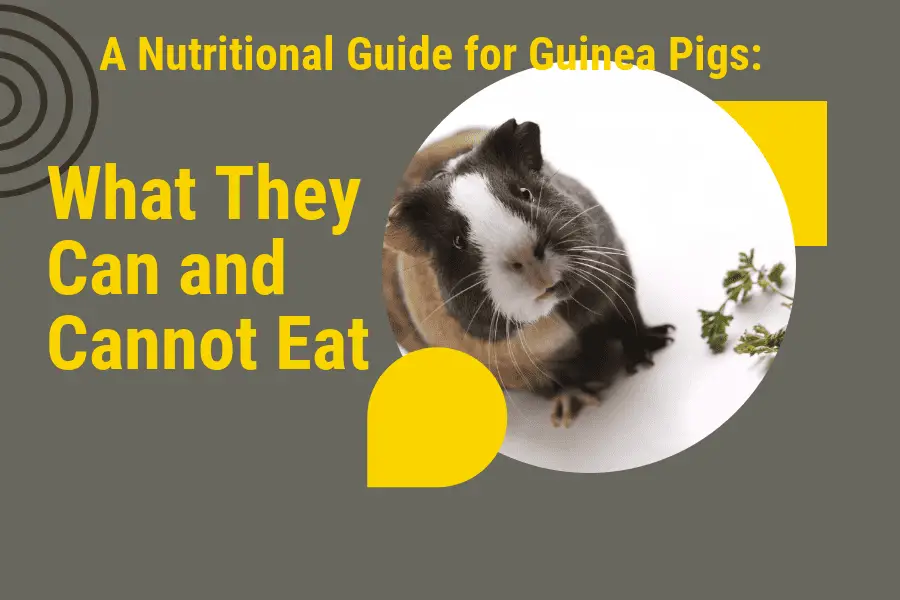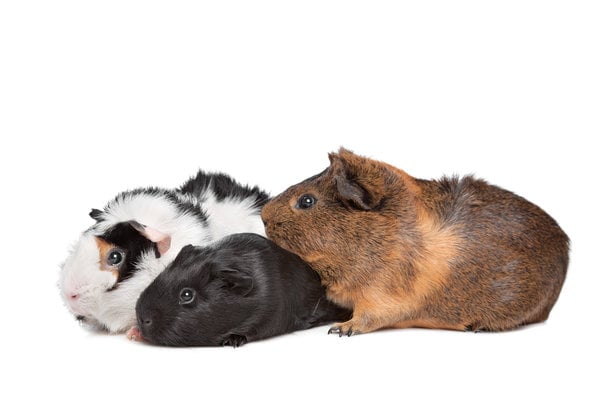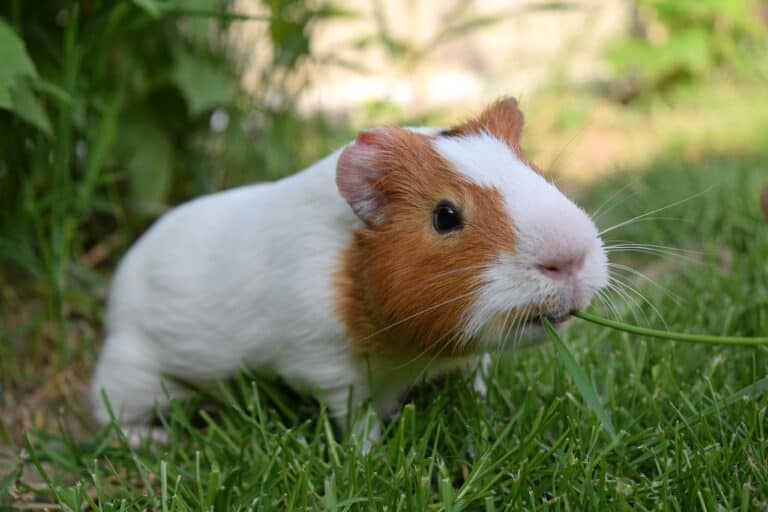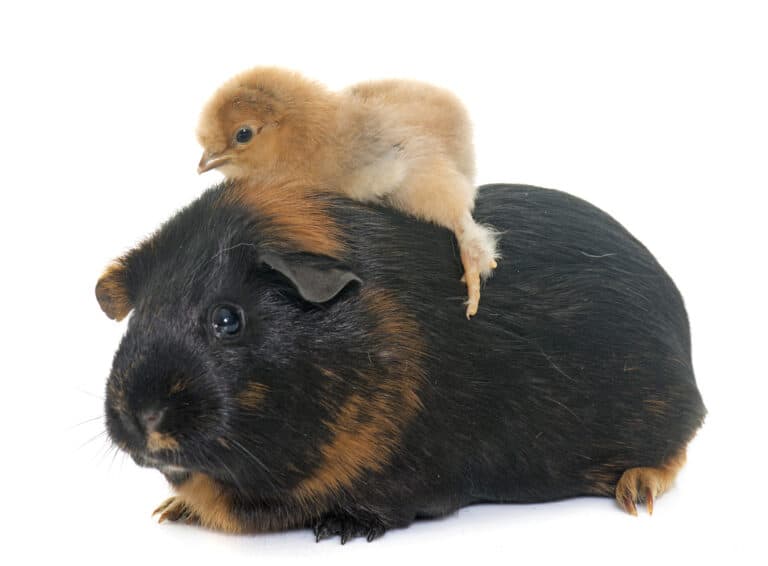A Nutritional Guide for Guinea Pigs: What They Can and Cannot Eat
Finding the right balanced diet for your guinea pigs can be challenging. Most people who own guinea pigs don’t realize just how many different foods they can give their pets.
Most owners think that all Piggies have access to the same foods, which isn’t always the case. Some foods are more suitable for some species than others, which is why it’s important to know what your piggies can and cannot eat so you can make sure they get all the nutrients they need from their food.
With that in mind, we’re going to take a look at what a balanced diet for guinea pigs should look like, as well as some of the pitfalls you need to avoid when trying to feed your pet.
What to Include in a Guinea Pig Diet
A healthy guinea pig diet should include a balanced mix of foods. Your guinea pigs need to have access to a variety of fruits, vegetables, grains, and proteins.
Some of the most important food items you’ll need to include on your list are hay, water, and fresh bedding. You should also give your piggies access to timothy hay or alfalfa hay as they are a natural source of fiber.
Guinea pigs don’t digest cellulose very well and it can be difficult for them to break down the hay in their diets and get the nutrients they need this way. Hay will help with digestion so that your piggies can get more out of their food. Another important part of a guinea pig diet is fresh veggies and fruit.
You should give your pets access to things like carrots, apples, bell peppers, cucumber, pumpkin seeds, kale leaves, and more. These items will provide all sorts of vitamins that are necessary for good health.
For protein sources, you should make sure your piggies have access to things like cooked chicken or rabbit as well as peanut butter or canned dog food if they enjoy these types of food items.
Protein is essential in any diet but it’s especially important for guinea pigs because they require an animal-based diet in order to stay healthy.
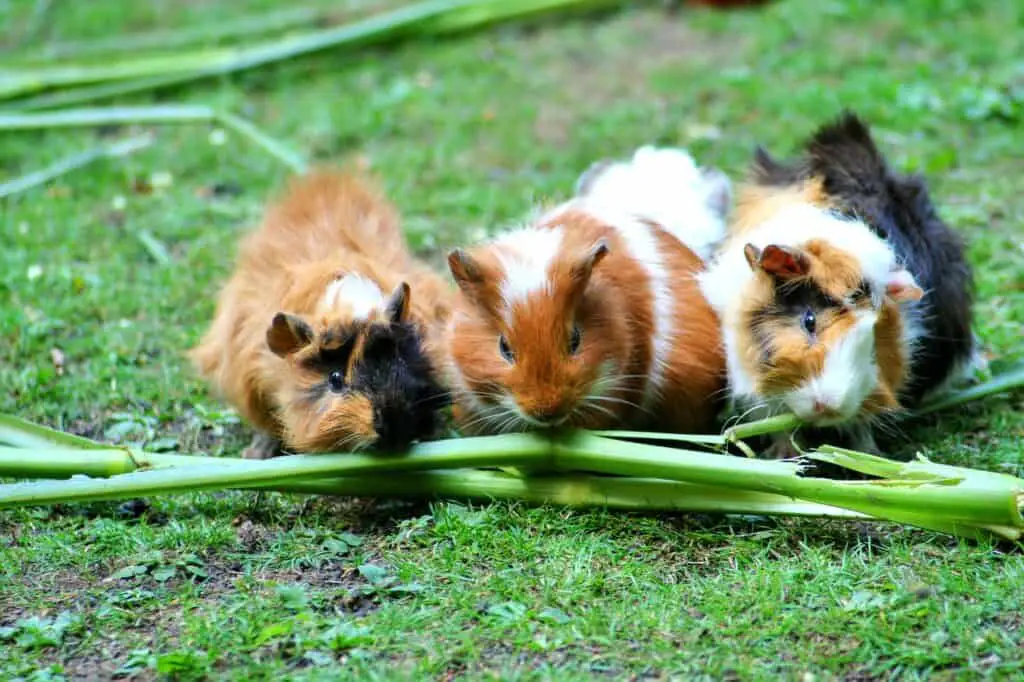
What to Avoid in a Guinea Pig Diet
When it comes to a guinea pig diet, there are some foods you have to avoid. These include chocolate, onions, avocados, raisins, citrus fruits, and other fruits that aren’t recommended for ferrets.
These foods should be avoided because they can cause the guinea pigs’ digestion to be disrupted. Some of the foods you should also avoid having to do with their nutritional value.
For instance, while guinea pigs don’t require any dairy products in their diet, sugar-sweetened treats and fruit juices are not recommended either. I’ll go into more detail on these two points later in this article.
One thing you can give your pet that is allowed is vegetables and fruits. You might be surprised at what your piggies will eat! That’s because they can process some types of vegetables better than others and therefore they enjoy them more than other things they could eat like hay or pellets which may not be as appetizing to them.
You should also avoid giving your guinea pig any processed food items like cereal or bread because those contain grains that are not good for most animals including rodents like guinea pigs because they could cause digestive problems.
Some Good Sources of Vitamin C for Guinea Pigs
One of the most common supplements for guinea pigs is vitamin C. Vitamin C helps to boost the immune system and prevent infection.
It can also be beneficial in the promotion of bone growth, sexual development, and reproduction. Vitamin C is just one type of vitamin that guinea pigs need to stay healthy.
When it comes to vitamins, you’ll want to be sure your guinea pig gets plenty of calcium from their diet. If your piggies don’t get enough calcium, they could experience health problems like constipation or seizures.
They won’t develop proper bone tissue and may lose some teeth because of poor dental health. Vitamin D3 is another important supplement for guinea pigs. This supplement can help them maintain a healthy weight and bones as well as increase energy levels.
A lack of vitamin D3 in the diet can cause skeletal deformities or even blindness in young piggies.
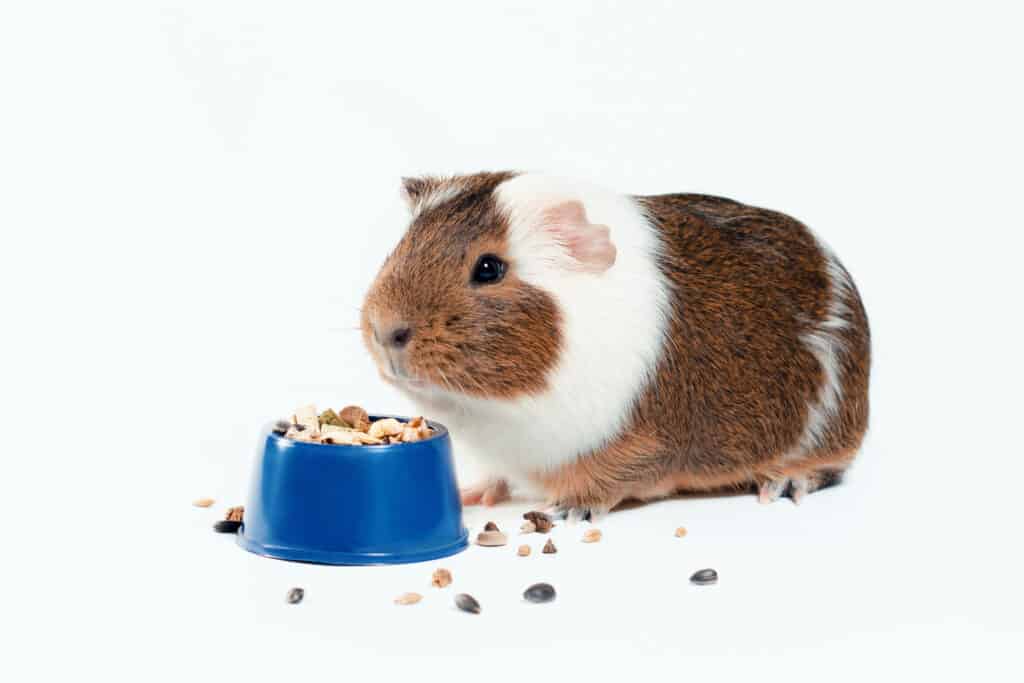
Some Good Sources of Vitamin B for Guinea Pigs
One of the most important vitamins for guinea pigs is vitamin B12. This vitamin helps to regulate their nervous system, which is imperative for a healthy life.
Vitamin B can be found in a variety of animal sources, but guinea pigs are also able to derive it from certain plant sources as well.
Good sources of vitamin B include: Beef liver Chicken giblets Shellfish Pigskin
Some Good Sources of Vitamin E for Guinea Pigs
The best source of vitamin E for guinea pigs is a diet rich in dark green leafy vegetables. These foods are also an excellent source of beta-carotene, which is important for the health and well-being of your piggies.
If you want to give your pet guinea pigs a special treat that’s high in vitamin E, try adding some pumpkin seeds to their diet. This will introduce them to new nutrients while still providing them with the vitamins they need.
Another thing to consider is adding some wheat germ or sunflower seeds to their food bowl. They provide the same nutrients as pumpkin seeds but in a different form. Another great way to provide your guinea pigs with vitamin E is with some grass hay pellets.
The hay pellets are sprinkled liberally over the grass hay for your Piggies so that they can easily eat it when they need it most, meaning you don’t have to worry about giving them extra food when they’re sick or not feeling well by just sprinkling it on top of their food bowls like other hay items such as horse pellets or
Timothy hay. In addition, guinea pig hay typically has lower levels of nitrates than other feedstuffs, meaning that your pets are eating less nitrate-rich foods that could potentially cause respiratory problems and harm the heart and blood vessels.
If you do decide to use another type of hay instead, make sure there isn’t any nitrate contamination in
Some Good Sources of Folate for Guineas
Guinea pigs need a balanced diet that includes the three essential macrominerals: calcium, phosphorus, and magnesium. These are found in many plants, such as vegetables, seeds, and fruits.
Vegetables like broccoli and kale are good sources of folic acid. Fruits like strawberries and bananas also have high levels of folate as well as potassium which is important for piggies’ heart health.
Guinea pigs generally can’t eat citrus fruit or tomatoes because of the high sugar content in them. Bananas, on the other hand, are an excellent source of fiber that promotes healthy bowel movement and regularity.
A nutritionally-balanced diet should consist of foods that come from plant-based sources to provide your guinea pig with the nutrients it needs to stay healthy and avoid obesity.
Other Benefits of Including Fruits and Vegetables in your Piggie’s Diet
Fruits and vegetables provide your guinea pigs with a number of nutrients that are important for good health.
They provide your piggies with vitamins, minerals, antioxidants, and more. Including fruits and vegetables in your guinea pig’s diet can also help them maintain a healthier weight.
It’s much harder for guinea pigs to gain weight if they eat a balanced diet like the one discussed above. Another benefit of including fruits and vegetables in your piggie’s diet is that it helps keep their teeth clean.
Many plant-based foods contain fibers that are good for oral health. One study found that people who ate about two servings of fruits or vegetables per day had twice as many years without any cavities than those who only ate meat and dairy products.
A healthy diet also prevents gum disease, which will ultimately prevent tooth loss.
Conclusion
A guinea pig diet can be difficult to maintain, but it can be done. By including fruits and vegetables in their daily diet, you can make sure that your guinea pig is getting a balanced diet and staying healthy.
FAQs
What are the essential nutrients guinea pigs need?
The following are some of the essential nutrients guinea pigs need to stay healthy and happy. 1. Protein Protein is an important nutrient for all animals, including guinea pigs.
It is vital for the development and maintenance of body tissues and the functioning of the immune system.
A diet that is high in protein helps maintain a healthy body weight in guinea pigs and can help reduce the risk of obesity.
2. Fat Along with protein, fat is an important nutrient for guinea pigs. It plays a critical role in the body’s metabolism, which regulates the use of nutrients by the body and produces energy from food. A diet that is high in fat helps provide your pets with the energy necessary for normal bodily functions.
3. Carbohydrates Guinea pigs need carbohydrates in their diet to help regulate their bodies’ use of energy from food.
A diet high in carbohydrates can help prevent insulin resistance, which can lead to type 2 diabetes in pets.
4. Fiber Fiber is another important nutrient pet owners should be sure to include in their pets’ diets. It helps lower blood cholesterol levels and can help prevent colon cancer in pets by reducing the absorption of carcinogens in their digestive tracts.
It also helps regulate bowel movements, reducing the chances of constipation or diarrhea.
What are the best types of foods to give your guinea pigs?
Guinea pigs are omnivores, so it’s important to provide them with a well-balanced diet. The most common foods used to feed guinea pigs are hay and vegetables.
Hay is high in fiber and protein, while vegetables are a good source of calcium and vitamins. If you’re new to feeding your piggies, start by providing them with small amounts of fresh grass or hay, gradually increasing their intake over time.
As piggies get used to eating fresh foods, you can switch them over to commercially prepared pelleted hay or baby food pellets.
Never give your piggies uncooked or undercooked meat or bones. These can be dangerous because they can cause blockages in their intestines and lead to death.
Additionally, never give them human or dog food as this can be extremely dangerous and toxic to piggies.

